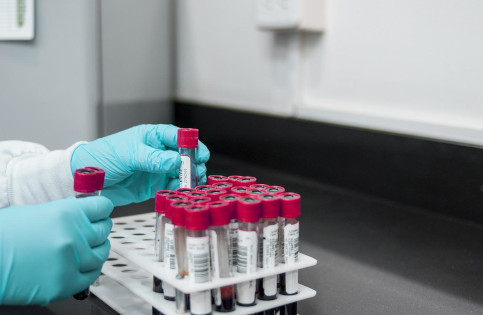Calore ed apoptosi
Calore ed apoptosi delle cellule
 Un articolo pubblicato nel Novembre 2011 sulla rivista internazionale Apoptosis delucida alcuni dei meccanismi alla base dell'efficacia dell'ipertermia nell'inibire la proliferazione delle cellule tumorali ed indurre apoptosi.
Un articolo pubblicato nel Novembre 2011 sulla rivista internazionale Apoptosis delucida alcuni dei meccanismi alla base dell'efficacia dell'ipertermia nell'inibire la proliferazione delle cellule tumorali ed indurre apoptosi.
Inhibition of checkpoint kinase 1 abrogates G2/M checkpoint activation and promotes apoptosis under heat stress.
Furusawa Y, Iizumi T, Fujiwara Y, Zhao QL, Tabuchi Y, Nomura T, Kondo T.
Source
Department of Radiological Sciences, Life Science Research Center, Graduate School of Medicine Pharmaceutical Sciences, University of Toyama, Sugitani 2630, Toyama, 930-0194, Japan.
Abstract
Hyperthermia induced by heat stress (HS) inhibits the proliferation of cancer cells and induces their apoptosis. However, the mechanism underlying HS-induced apoptosis remains elusive. Here, we demonstrated a novel evidence that checkpoint kinase 1 (Chk1) plays crucial roles in the apoptosis and regulation of cell cycle progression in cells under HS. In human leukemia Jurkat cells, interestingly, the ataxia telangiectasia and Rad-3 related (ATR)-Chk1 pathway was preferentially activated rather than the ataxia telangiectasia mutated (ATM)-checkpoint kinase 2 (Chk2) pathway under HS. The selective inhibitors of ATR or Chk1 abrogated HS-induced apoptosis in human leukemia Jurkat cells whereas the inhibition of ATM or Chk2 caused only marginal effects. Inhibition of ATR and Chk1 also abrogated G2/M checkpoint activation by HS in Jurkat cells. The effects of small interfering RNA targeting Chk1 were similar to those of the selective inhibitor of Chk1. In addition, the efficiencies of Chk1 inhibition on G2/M checkpoint abrogation and apoptosis induction were confirmed in the adherent cancer cell lines HeLa, HSC3, and PC3, suggesting that the targeting of Chk1 can be effective in solid tumors cells. In conclusion, these findings indicate a novel molecular basis of G2/M checkpoint activation and apoptosis in cells exposed to HS.
Dr. Carlo Pastore